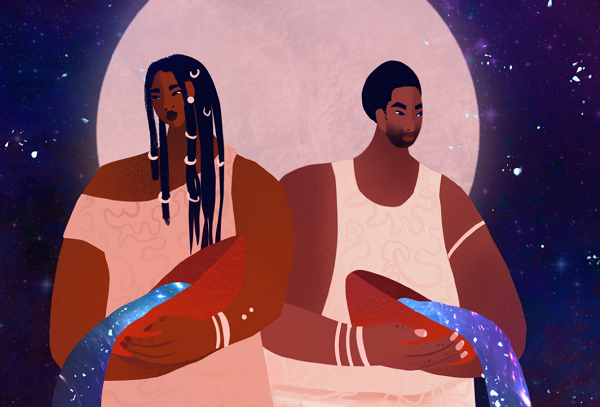Healing Justice Lineages: Disrupting the Medical-Industrial Complex
By Sonia Sarkar, Cara Page and Erica Woodland
Published April 18, 2023
 Healing Justice Lineages: Dreaming at the Crossroads of Liberation, Collective Care, and Safety is a new book from Cara Page and Erica Woodland. I had the opportunity to speak with both authors about the movement histories that have shaped what healing justice is today. They also share how healing justice can disrupt a medical–industrial complex rooted in systemic oppression.
Healing Justice Lineages: Dreaming at the Crossroads of Liberation, Collective Care, and Safety is a new book from Cara Page and Erica Woodland. I had the opportunity to speak with both authors about the movement histories that have shaped what healing justice is today. They also share how healing justice can disrupt a medical–industrial complex rooted in systemic oppression.
This interview has been edited for length and clarity.
Sonia Sarkar: In the opening of Healing Justice Lineages, you outline why now is the moment for this book. Both of you have deep roots in movement work and experience with healing justice as a framework. Why was now the right moment for each of you to spend time writing this book?
Cara Page: I had been a reproductive-justice and LGBTQ-liberation organizer, and then I deepened into disability justice and language justice by the early 2000s. I started to explore the role of healing and generational trauma in relationship to colonization, slavery, and structural oppression. Honestly, really sitting down and asking the question: What is the role of trauma in our communities and social movements?
Having worked with a lot of survivors, having worked on the HIV/AIDS epidemic, and for myself as a survivor of family violence…I was noticing that we didn’t have language to talk about trauma and healing outside of a clinical, medically pathologized setting.
That led me to found Kindred Southern Healing Justice Collective, which is a Southern-based, Black feminist-led abolitionist network of healers, health practitioners, cultural workers, and organizers in the South looking at ways to transform generational trauma and build collective care and safety. Importantly, we draw on the lineages of freedom fighters from the Civil Rights Movement like the Young Lords, the Black Panthers, etc. We aren’t beginning a new conversation.
Erica Woodland: I went to college and was planning on becoming a doctor. And, you know, that’s a very rigorous process for anybody, but especially for a Black person. Through the process of being educated I came into direct confrontation with White supremacy, medical racism, and these demonizing views, particularly of Black folks, disabled people, etc., that exist within healthcare.
I decided to take a course on the history of the Black Panther Party. It shifted my thinking about being a healer. Since my early twenties, I’ve worked in HIV prevention, harm reduction, with active drug users, sex workers, folks who are incarcerated, formerly incarcerated. I was also organizing against the war with people of color in Baltimore and around abolition and the freedom of all political prisoners. I got to see very directly the intersection of the prison-industrial complex and the failures of the medical-industrial complex and how they collude. And that led me to be deeply curious about how to skill up around holding trauma.
The work of the National Queer and Trans Therapists of Color Network was really born out of the question of how we connect practitioners who are deeply critical of the medical industrial complex to organizers in social justice movements. We got introduced to healing justice through the work of Cara and Kindred Collective. Once we made that pivot, that opened up a conversation about how we disrupt the idea of personal care. How do we ensure that we’re not falling for false solutions just because they look a little bit more humane [than existing solutions]?
SS: Let’s talk about the medical industrial complex. What are its roots, and how does it perpetuate criminalization and harm today? How can healing justice disrupt the medical-industrial complex and enable abolitionist systems of care?
CP: I want to give a shout out to the leaders of the reproductive justice movement, in particular Loretta Ross, who was one of my mentors at the beginning, and many others. When reproductive justice started as a movement in the late 90s, it began as a Black, Indigenous, and women of color-led movement. It then evolved into focusing on queer and trans folk and centering a disability-justice lens. In particular, the movement critiqued the role of eugenics and population control within [systems intersecting with reproduction]. RJ wrestles with the myth that people of color’s fertility is responsible for environmental degradation and the death of the planet, when it is instead war. We also have to understand how reproductive control relates to sterilization, policing abuse, and surveillance of bodies for the sake of reproducing for the wealthy elite.
Furthermore, we need to look at racial capitalism inside of the medical-industrial complex. Understanding the role of controlling, co-opting, owning genetic materials of Black and Brown bodies or disabled bodies; understanding that colonizers or White supremacists literally believe in their core that we should not exist unless we are reproducing or producing labor. So, when I understood that I was like, why are we not talking about this in an anti-violence context?
I feel the book not only names the state and White supremacy. We are naming the role of “health justice strategies” that have also participated in the pathologizing of communities. We’re also questioning the role of providers and how we’ve been complicit with old beliefs that are used to weaponize science as a tool of policing and surveillance of bodies.
[READ FULL ARTICLE HERE]
